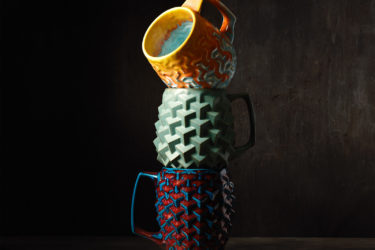The Local newsletter is your free, daily guide to life in Colorado. For locals, by locals.
Will Day’s large-scale abstract works—created primarily with oil and acrylic paints and rich in color and movement—have long been favorites of art collectors around the country. In his most recent exhibition, It’s Personal, at the Center for the Arts Evergreen, Day teamed up with local artist Gail Folwell to examine and reflect upon ideas of human connection and isolation—a timely exploration on the heels of the COVID-19-caused upheaval around the world. We caught up with Day to talk about how the pandemic influenced his painting, where his work is headed, and why art matters now.
5280: Let’s start by hearing about your creative process.
Will Day: It’s very organic. I come to my studio every day—it’s a large warehouse studio in downtown Boulder—and I sit with an open heart. I look at the walls and at all these raw canvases, which I roll out onto the floor, and I try new things within the parameters of my art. I let go of expectations or preconceived notions, and I just react to the canvases. Sometimes I’ll pray or meditate or listen to music, and then things just start…popping. I start painting emotions, poems, stories with color. And I work on a ton of different pieces all at once; that’s part of my freedom of expression.

You and fellow artist Gail Folwell just wrapped a show in Evergreen that explored themes that likely resonate with nearly every human on the planet right now. I understand that much of that work was created during the pandemic. What was the past year like for you and your work?
[After the stay-at-home orders lifted], I came to the studio and no one was here, which brought up these feelings of abandonment and loneliness. I realized I was scared. It was painful. I ripped everything off the walls and then started rolling out blank, raw canvases—even larger than I’ve typically done—and asking myself questions: Am I really a painter? What should I be doing now? What can I possibly say to the world in this time? [In response to those questions], I created a whole body of work called the Hope Series. Hope is not about control. When hope shows up, ego leaves, fear leaves, and the human spirit prevails. I’m all about bringing hope and love through color, shape, and composition. Gail and I pulled together this show as a way of “talking about” conflict, isolation, passion, and connection.
Now, on the other side [of the pandemic], I’m full of joy. That process of resetting [during the pandemic’s height] brought about a real renaissance for me. I’m really trying to communicate, through my work, the value of moving into the future, not looking back, and embracing shared human experience.
That sounds vaguely familiar: A plague overtakes the world and then, as it ebbs, the world enters an era of extraordinary creativity and innovation.
Exactly! And I hope what we learn, as we come out of this pandemic, is that all of us are better when we’re not siloed or isolated. Connection with other people is, for me, a huge creative force, and creativity matters to us all. The Renaissance showed us that creativity is necessary for solving problems, and it’s a way of communicating with other people, even if we don’t have the words to describe what we’re feeling or hoping.
Is the scale of your work part of that communication?
It is. I’ve always wanted to go big, always felt like the paintings need to be life-size. Scale, to me, is about being able to encounter a painting and be surprised but not overwhelmed. It gives me freedom not to be constrained within the borders of a frame.
Why does art matter now, at this point in human history?
Art is about freedom. Science has limitations; it’s innovation, but it’s also control. In art, there are no boundaries. I believe art can move people to places of hope and love. In this time of uncertainty, art—painting and poetry and writing and designing and building—reminds us to pay attention to what it means to be human.
There’s this growing push to divide us all into smaller and smaller buckets and categories. Art doesn’t do that. It draws us all in. You either love it or you don’t, but it doesn’t divide along arbitrary lines. I can’t fool you with my art. I can only offer it up, as it comes to me and through me, and you can decide what you find in it. It’s as honest a conversation as we can have.
Editor’s note: Day’s work is part of the current exhibition Viral Influence: Art in the Time of Coronavirus at the Arvada Center; the show runs through August 22, 2021. Day will also have an online exhibition with the recently launched art platform VU in October. Learn more by following him on Instagram (@willdayart) or visiting willdayart.com and signing up for his newsletter.













